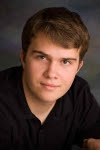
Before covering the three films I saw on Day Two of AFI Fest--those reviews won't come until later as I have limited time before screenings begin today--I'd like to cover the big movie showing tonight at the festival, which I had a chance to see at a press screening.
Arnaud Desplechin's A Christmas Tale is a movie that will have hardcore art-film enthusiasts raving and everybody else snoozing. Yes, it's true that the movie is pretty darn amazing on a technical level: it tells the story of an extended-family of 15 gathering over Christmas and never loses sight of a single character. Every persona is well-developed and, indeed, the viewer feels like they know each of them. Ice the cake with some lovely cinematography courtesy of veteran Eric Gautier and you've got yourself what would seem like a masterpiece on the surface.
And yet A Christmas Tale is no masterpiece. In fact, it may not even be a good movie. The reason is simple: however well-constructed its characters and situations are, they never connect with the audience on an emotional level. Desplechin's work is so technically competent that it practically begs to be viewed as an exercise rather than the deeply poignant experience that it should be. There is a sense that the filmmaker loses touch with his characters by overanalyzing them; they should be rough around the edges but the film's execution doesn't allow for this.
Desplechin's harmful overzealousness in A Christmas Tale does not just show in the fact that he spends a lot of time indulging in each of his characters. It also rears its ugly head when he structurally implies up-front that the experience will be an greatly emotional one. Desplechin inserts all of the film's conflicts and dramatic meat into the first act of the movie--we learn right away that the family's matriarch, Junon (Catherine Denuve), has been diagnosed with terminal leukemia; that she lost a 7-year-old son decades ago, likely because she passed the disease on; that her next-eldest son, Ivan (Melvil Poupard), became her favorite because he took the deceased's place; and that her youngest, Henri (Mathieu Amalric), will soon be giving her a bone-marrow transplant despite being banished from the family in a legal-agreement by her depressed daughter, Elizabeth (Anne Consigny)--to show that he's going to use the rest of the movie to work on emotional-development. (If that sentence seemed long and complicated, then this movie, which plays like 25 of them strung together, isn't for you.) Oh, and don't forget that A Christmas Tale is indeed about its titular holiday, meaning its frontloaded structure suggests a genre-defying movie in and of itself because, after all, when was the last time you saw a Christmas movie about character-development?
The above represents precisely the irony of A Christmas Tale: it focuses so much on developing its characters and yet the characters never once move the audience. Part of this is because they collectively represent a dysfunctional family and dysfunctional families are rarely involving unless their antics are neurotically funny (forget about touching). But a lot of it is because Desplechin just wants the film to be perfect, which is the antithesis of what his characters are. They should be a family of humans experiencing authentic problems as they come together to celebrate a holiday; instead, they're pawns in an artistically-drunken Christmas movie that wants to make sure you know it's not like the rest of its kind. The result is a motion picture that will leave most viewers yawning well before its cumbersome 152 minutes have passed. 2 Buckets out of 4.
A Christmas Tale screens tonight at 6:45 p.m. with a Tribute to Arnaud Desplechin and again on Fri., Nov. 7 at 7:30 p.m. at the Los Angeles County Museum of Art.














